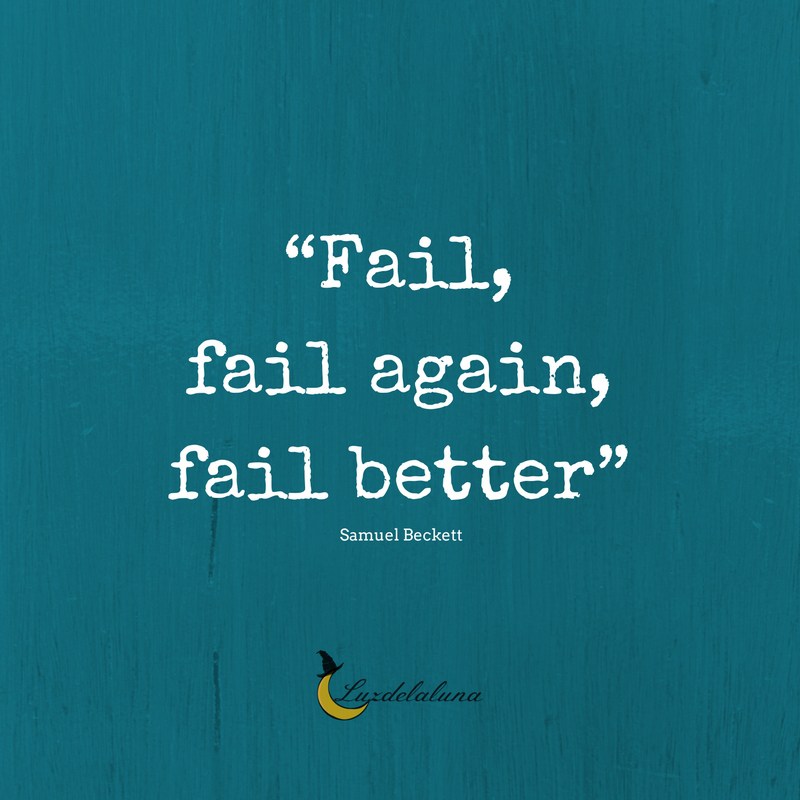
Create your account
Let's set up your account, no credit card required!
Already have one? Login here.

Let's set up your account, no credit card required!
Already have one? Login here.
This article originally appeared on the geeks & creatives blog of wisnet.com
Last week someone I was talking to mentioned not wanting to fail. My immediate reaction/self talk was: “Yup, right there with you… I’m seriously afraid of failure too!”
I’ve thought about that conversation and my gut reaction quite a bit since. I started wondering if I was making a mistake in my thinking and worse, in my work. And then I listened to one of my favs – a Tony Robbins podcast, which referenced mistakes as moments of opportunity. Which got me thinking… are mistakes better or worse than failures? How are they related and how are they different?
In an old post, Seth outlines the difference between mistakes and failure as:
A failure is a project that doesn’t work, an initiative that teaches you something at the same time the outcome doesn’t move you directly closer to your goal.
A mistake is either a failure repeated, doing something for the second time when you should have known better, or a misguided attempt (because of carelessness, selfishness, or hubris) that hindsight reminds you is worth avoiding.
Seth Godin – The difference between a failure and a mistake

There is a lot of talk about “failing faster” as long as we learn from our actions. Because of my “achiever” nature (which I admit is a shadow when overused or misused), I do my very best to avoid mistakes and failure at all costs. Not saying mistakes don’t happen… but when they do, having the growth & learning mindset definitely softens the blow.
In the Tony Robbins podcast I listened to, author, speaker, and professor – Dan Heath talks about the opportunities to create powerful moments … disrupting what people expect – in a good way – within our day-to-day interactions, especially in business. In all honesty, I’m sure my personal reaction will always be “$@#%, what did I do,” but there is a greater opportunity to re-frame that negativity into self talk of learning from the mistake, of course avoiding repeats, AND in my opinion, most importantly, thinking through what can be done to make this a positive experience for the person on the other side of a mistake.
“When people treat you warmly… when they react and accept your problems as their problems, it’s amazing how forgiving people can be.”
Dan Heath
Let’s assign a different definition to failure… one that is not tied to self-worth or relevance at the office, at home, or in the community, and see how thoughts & feelings change around the topic. What if I told you embracing failure meant tackling the hard work first – searching for the “Achilles’ heel” (Teller, 2016 TED talk) in order to to be more efficient and effective in our work in the future. Furthermore, what if by be more willing to fail – challenging thought processes, going against the grain, finding that “heel,” and/or breaking things, we are actually being more creative, innovative, solution-driven, and perhaps a tad bit closer to success? How does failure feel now?
What if you got a bonus for your failure?
Watch this TED talk about how failure is handled on moonshot projects at X (formerly Google X):